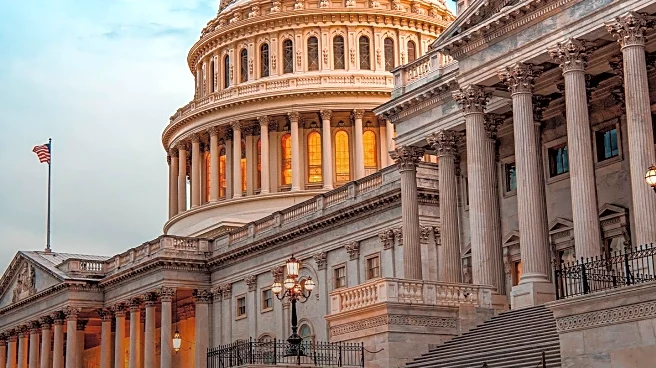What's Happening?
Robert F. Kennedy Jr.'s newly formed vaccine advisory committee, the Advisory Committee on Immunization Practices (ACIP), has faced criticism for its recent decisions on vaccine recommendations. The committee voted to limit the use of the MMRV vaccine for children under four, a move that could affect the national immunization schedule. Additionally, the committee discussed but did not vote on delaying the hepatitis B vaccine from birth to one month. These actions are part of a broader strategy by Kennedy to reassess vaccine policies, which has included reducing recommendations for COVID-19 and flu vaccines.
Why It's Important?
The committee's actions have sparked concern among medical professionals and public health experts, who fear that these changes could undermine public confidence in vaccines. The decisions reflect a shift in vaccine policy under Kennedy's influence, which could lead to reduced vaccination rates and increased vulnerability to preventable diseases. The focus on vaccines perceived as less necessary or more risky could set a precedent for further changes, potentially impacting the overall effectiveness of the U.S. immunization program.
Beyond the Headlines
The committee's approach highlights a growing trend of skepticism towards established vaccine practices, which could have long-term implications for public health. By questioning the necessity and safety of certain vaccines, the committee may be contributing to a broader cultural shift towards vaccine hesitancy. This could result in decreased herd immunity and increased outbreaks of preventable diseases, posing a significant challenge to public health infrastructure.










